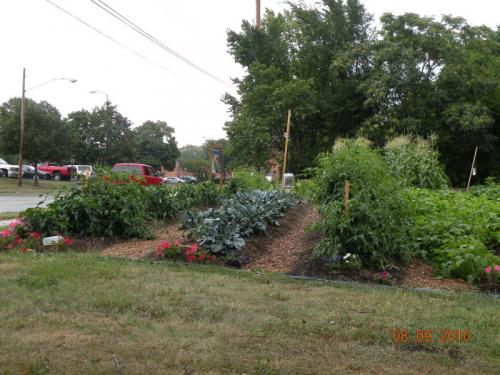Edible Flint, MIFFS awarded state grant to support Flint’s urban gardeners
MDARD awarded a state grant to Michigan Food and Farming Systems to support urban agriculture in Flint in partnership with edible flint, Genesee County MSU Extension and other partners to address residual soil lead risks from past land uses.

A new Michigan Department of Agriculture and Rural Development (MDARD) grant, titled “Sustainable Growth of Urban Agriculture in Metropolitan Flint” will support urban farmers and gardeners in Flint in the 2016 growing season by providing resources to expand the number of soil tests and irrigation hose filters, which remove lead, at reduced cost to growers. Michigan Food and Farming Systems (MIFFS) will help edible flint and other collaborating partners who have identified these concrete steps for mitigating potential risks associated with the use of City of Flint water supply for crop and garden irrigation develop a short-term strategy to focus risk reduction efforts in 2016. MIFFS will also help the group identify mid, and long-term options for transitioning from the initial response to a sustainable recovery program that increases local food production capacity in the Flint region.
Addressing risks from lead in the soil associated with the past use of leaded gasoline and lead paint will help assure that urban farmers and gardeners aren’t being further exposed to lead while they grow crops to increase access to healthy food for Flint’s residents. In response to the Flint water emergency, we have learned that residual (historic) lead in urban soils is more of a concern than additional lead added from the water, which is why soil testing is recommended for all food gardens, as well as researching a site’s previous uses.
In the upcoming growing season, edible flint will support Flint’s food gardeners through its Garden Starters Training classes, Kits and Services program, and additional educational programing specific to the Flint water crisis. Through funding from this grant, edible flint will expand its Garden Starters services and the MIFFS Food and Farming Facilitation team will provide planning and strategic facilitation to align the group’s efforts towards safe gardening practices in Flint. Collaborating partners include MSU Extension-Genesee County, MIFFS Women in Ag Network, MSU School of Public Health, Community Foundation of Greater Flint, University of MI-Flint, Genesys Hospital and Hurley Hospital. Other areas of focus will be outreach and information sharing through edible flint’s community-based network; ongoing support via education on soil test results; emphasis on the benefits of healthy nutritional choices to fight lead exposure; and an introduction to food safety risk management steps for urban farmers and gardeners.

Since it’s inception in 2009, edible flint has been working with individuals, community organizations and institutional partners to support Flint residents in growing and accessing healthy food in order to reconnect with the land and each other, supporting 826 food gardens in the city for the past five years. Supported by Michigan State University Extension and other valued community partners, edible flint and MIFFS want to make sure Flint residents have access to the information and resources they need to have healthy and successful food gardens in 2016.



 Print
Print Email
Email


